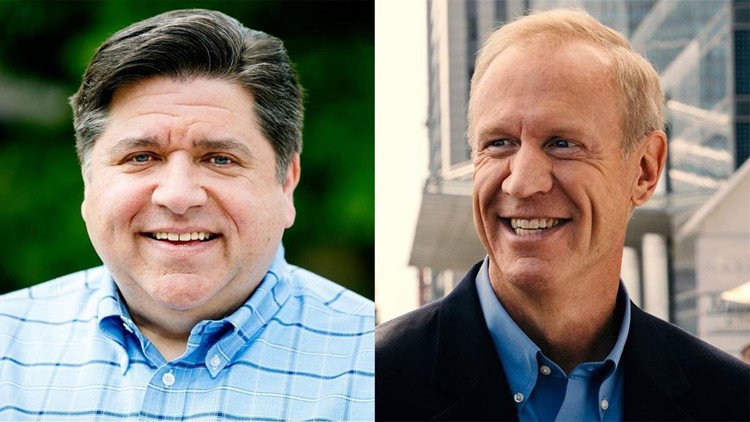SPRINGFIELD, Ill, (AP)-Should lawmakers tinker with the state’s income tax rates and scale them higher for people who make more money and lower for those who make less? That’s a question voters could answer in the governor’s race when they vote Nov. 6.
Democratic gubernatorial candidate J.B. Pritzker wants a progressive tax, though he hasn’t revealed what the rates would be or what income levels might trigger higher taxes. He has said the rich should pay more and that he would work with lawmakers to determine a rate and income structure for the progressive income tax.
Pritzker told the State Journal-Register editorial board in Springfield last week that it would take a couple years to implement a progressive tax because there would need to be a state constitutional amendment to change the existing flat tax to a system with graduated rates. To get more revenue to spend on programs in the short-term, Pritzker has proposed legalizing sports betting, marijuana for recreational use and implementing service taxes. His campaign later walked back the candidate’s comments on looking at taxes on services.
Rauner told the Chicago Tribune Editorial Board on Friday that what Illinois needs to do is to follow the federal government’s cue.
“Cutting tax rates, simplifying the tax code, has had a huge positive benefit,” Rauner said of the federal tax cuts enacted in December. “Wages are rising faster, tax rates are lower and the American economy is pretty close to red hot and Illinois has benefited from that.”
While the the national average wage growth since the Great Recession has been 1.6 percent, Illinois was second to last in the country with wage growth of 0.7 percent. Illinois’ unemployment rate also remains above the national average.
Rauner said there needs to be structural reforms to state spending and policies to grow the economy, not tax increases, so that economic growth will outpace government spending.
Leonard and Associates Certified Public Accountant Michael Leonard said the federal tax cuts are helping Illinois families.
“A family of four that is renting right now, and they weren’t able to itemize, all of a sudden they double their [standard] deduction, that’s really going to help them out,” Leonard said.
If Illinois were to implement a progressive tax, Leonard said the more a taxpayer makes, the higher the rates they’ll pay.
Rauner has said Pritzker’s plan would increase taxes on middle-income earners. Pritzker denies that but hasn’t released his proposed rates.
Leonard said with more than 60 percent of Illinoisans making $50,000 a year or less, he expects politicians are aiming their tax plans at the middle class.
So far, Pritzker has not released an income tax plan, making it impossible to determine who would pay more or who would pay less. Although Pritzker has been vague, he has said he wants to lower income tax rates for the majority of people and higher rates for wealthy people. When he talks about wealthy people, he often mentions himself and Rauner. However, Pritzker hasn’t defined what amount of income qualifies as wealthy.
One piece of legislation filed at the statehouse had specific rates and income levels for a progressive tax. Democratic state Rep. Robert Martwick’s House Bill 3522 proposed changing the tax rates to: 4 percent for income up to $7,500, 5.84 percent for income up to $15,000, 6.27 percent for income up to $225,000 and 7.65 percent for income over $225,000. That measure was tabled. Pritzker has said he doesn’t support Martwick’s plan.
Illinois’ existing flat tax rate is 4.95 percent, after being increased from 3.75 percent last summer. Under Martwick’s plan, anyone earning more than $15,000 a year would see a tax increase.



